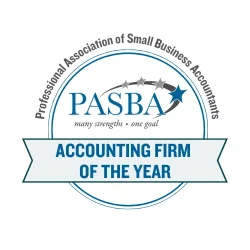When it comes to acquiring a vehicle for your business, one of the most common questions business owners face is: Should I buy or lease? The decision isn’t just about preference—it has significant implications for your cash flow, tax strategy, and long-term financial planning. In this article, we’ll break down the pros and cons of both options and help you determine which path makes the most sense for your business.
Buying a Business Vehicle: The Pros and Cons
The Tax Advantage of Buying
One of the biggest perks of purchasing a vehicle for your business is the ability to take advantage of substantial tax deductions. Under IRS Section 179, business owners may be able to write off the entire cost of the vehicle in the year of purchase—if it qualifies. This can be a powerful strategy if your business has had a profitable year and you’re looking to reduce taxable income.
Additionally, if the vehicle is over 6,000 pounds (such as many SUVs and trucks), it may also qualify for bonus depreciation, allowing for an even greater deduction in the first year. This is particularly beneficial for industries that require heavy-duty vehicles, such as construction, real estate, and logistics.
For further details on IRS vehicle tax deductions, refer to the IRS Business Use of Car Guide.
Building Equity and Eliminating Payments
Another advantage of buying is that, once the vehicle is paid off, you own it outright. That means no more monthly payments, allowing for greater cash flow flexibility in the long run. Plus, business owners who drive frequently can avoid the mileage limits that often come with leased vehicles.
When Buying Makes Sense
Consider a construction company that requires heavy-duty trucks for transporting equipment. Since these trucks often qualify for bonus depreciation and can withstand long-term use, purchasing is a more cost-effective option than leasing. The company also avoids mileage limits, which would be problematic due to long-distance travel.
Potential Downsides of Buying
While buying offers significant benefits, it does come with its own set of drawbacks:
- Higher upfront costs: You’ll likely need a larger down payment compared to leasing.
- Depreciation: The vehicle will lose value over time, impacting resale value.
- Maintenance costs: Once the warranty expires, you’ll be responsible for all repairs and upkeep.
If you plan to keep your vehicle for many years and drive it extensively, buying may be the best choice. However, if you prefer upgrading to a newer model every few years, leasing could be the better option.
Leasing a Business Vehicle: The Pros and Cons
Lower Monthly Payments and Better Cash Flow
Leasing allows business owners to drive a new vehicle with lower monthly payments compared to purchasing. This can be advantageous for companies that need multiple vehicles and want to preserve cash flow for other business investments.
Additionally, leased vehicles often come with warranties that cover maintenance and repairs, reducing unexpected expenses.
Tax Benefits of Leasing
While leasing does not allow for an upfront full write-off like purchasing does, it still offers tax benefits. Lease payments are typically fully deductible as a business expense, spreading the deduction over the lease term. This can be beneficial for business owners who prefer a consistent tax deduction each year rather than a large one-time write-off.
For an in-depth look at tax implications of leasing, check out this guide from the Small Business Administration.
When Leasing Makes Sense
A marketing firm that frequently hosts high-profile client meetings may prefer leasing luxury vehicles. Since leased vehicles allow the company to upgrade models every few years, it enhances the company’s image without the high upfront costs of purchasing.
Drawbacks of Leasing
Despite its advantages, leasing has some potential downsides:
- Mileage Limits: Leased vehicles come with mileage restrictions (often 10,000 to 15,000 miles per year). Exceeding this limit can result in expensive penalties.
- Continuous Payments: Unlike buying, where payments eventually end, leasing requires ongoing payments with no ownership at the end.
- Customization Restrictions: If you need to modify your vehicle for business purposes (e.g., branding decals, equipment installation), leasing may not be ideal.
If you prefer driving a new vehicle every few years, want lower monthly costs, and don’t drive excessive miles, leasing can be a great option.
Step-by-Step Guide to Making the Right Choice
1. Evaluate Your Cash Flow
- Do you have the funds for a large down payment, or do you prefer manageable monthly expenses?
2. Analyze Your Tax Strategy
- Do you need a large deduction in the current tax year (buying), or would you rather have smaller deductions spread over time (leasing)?
3. Consider Your Driving Habits
- If your business requires frequent long-distance driving, buying may be better.
- If you drive under 15,000 miles annually, leasing could work well.
4. Think About Long-Term Goals
- Do you want to own an asset for long-term value?
- Do you need a vehicle that aligns with branding and client expectations?
Ultimately, your business structure, industry, and financial goals will dictate the best decision. Consulting a tax professional or CPA can help you maximize your tax benefits and make a choice that aligns with your business strategy.
Maximize Your Business Vehicle Decision
Whether you choose to buy or lease your business vehicle, making an informed decision is crucial for your financial health and tax strategy. Each option has distinct advantages and potential drawbacks, so weigh your needs carefully.
Still have questions? Contact us today to discuss your business’s tax strategy and vehicle financing options.



